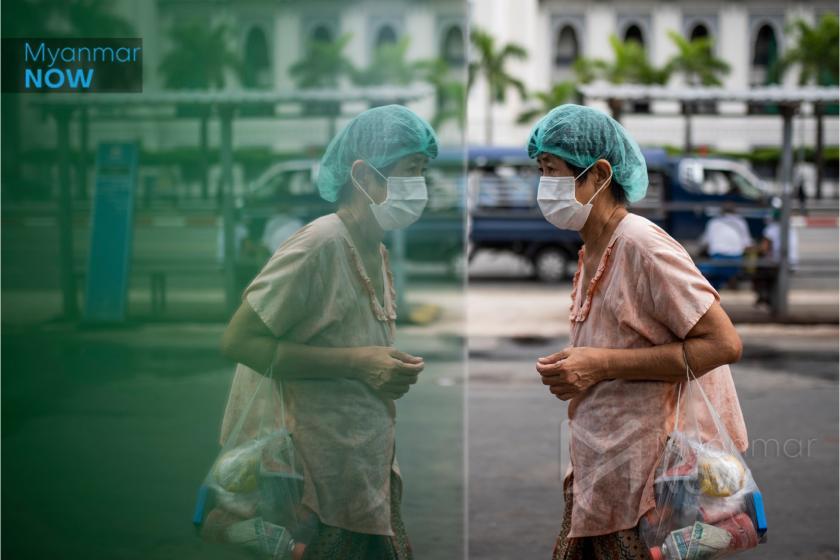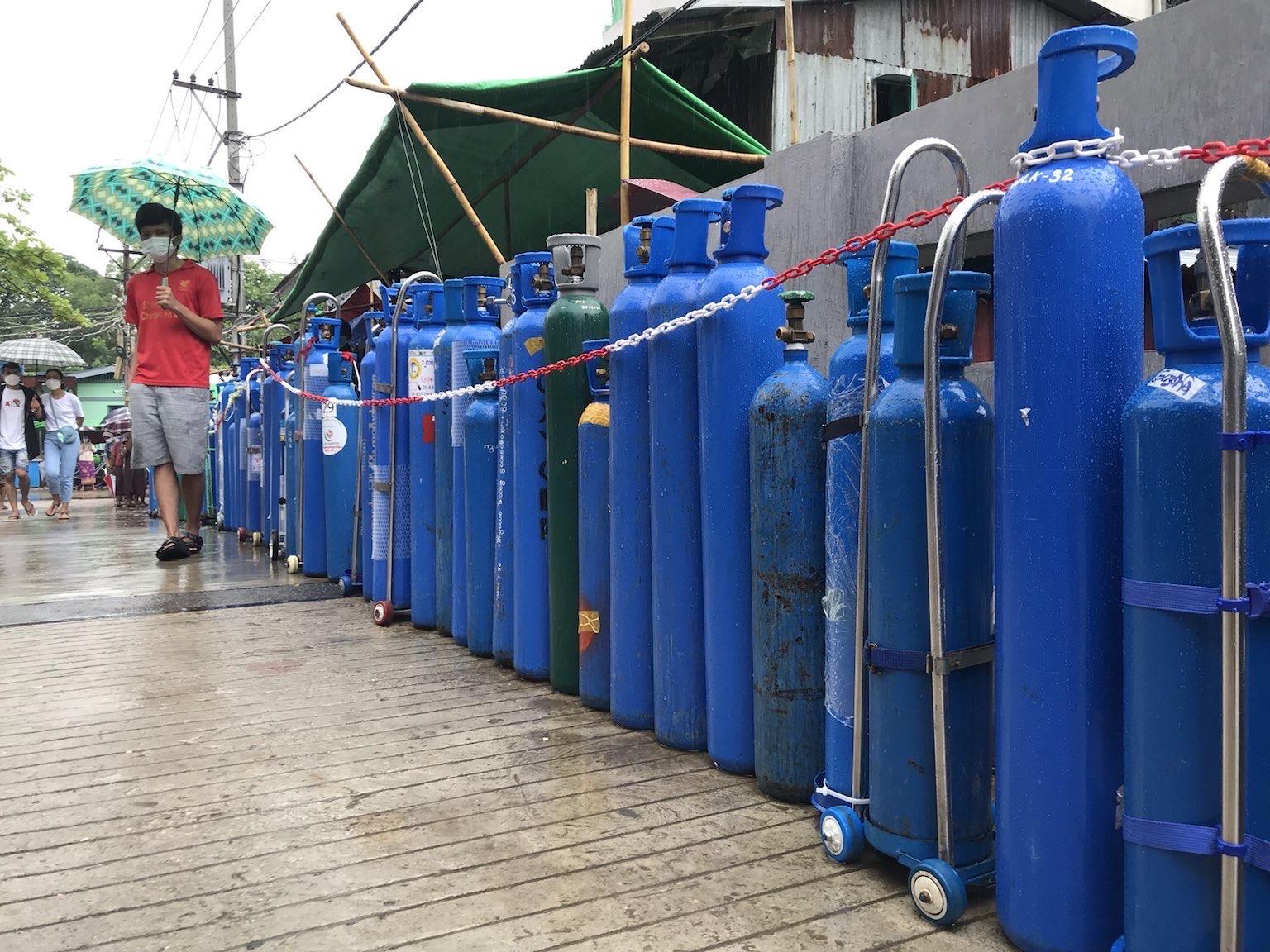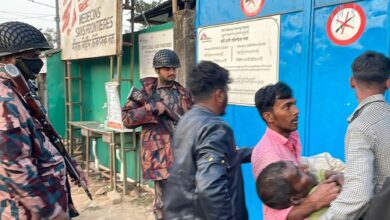
Traders say they are unable to import desperately needed medical supplies through Myanmar’s most important overland trade route after China closed the border to prevent a huge surge in Covid-19 cases reaching its own population.
The Muse border crossing in Shan State is Myanmar’s largest overland trading zone and handles the majority of border trade with China. Until recently, it was a key source of supplies such as medical masks and hand sanitiser.
The trading gate was closed on July 8 following reports of Covid-19 infections in Muse and in Ruili, a Chinese town just across the border. Other border gates in Kachin and Shan had already been closed, and Muse was the only trade route from China left open.
At one point, up to five 12-wheeler trucks carrying masks and six trucks carrying hand sanitiser and PPE were arriving in Myanmar every day.
But Zaw Min, managing director of Zaw Brothers Trade Transportation Services, said that has now stopped, despite the fact that Chinese authorities have said the trade suspension does not include drugs and medical supplies.
“After the border was closed, nothing could be traded,” he told Myanmar Now. “There are no official instructions for the import of medical equipment.”
The Myanmar Pharmaceutical & Medical Equipment Entrepreneurs’ Association has told traders that they can ask for help from the Department of Commerce to import medicine, but Zaw Min says the two countries need to issue specific guidelines.
The scarcity caused by the restrictions has caused prices of medical supplies to soar, he added.
Thailand, Myanmar’s second-largest border trade partner after China, has not blocked border trade routes but has imposed restrictions on selling of masks, a businesswoman who imports and sells Thai products told Myanmar Now.
The prices of Thailand’s masks, oxygen cylinders and other medical supplies have risen, and Thai customs have tightened regulations on the export of medicines to Myanmar, she said.
“It is not as easy as it used to be. Now, importing medical supplies takes too long. Some trade transportation services no longer provide services to transport masks, although they provide services for other goods,” she said. “They provide services only for home use. But they refuse to provide services to transport large boxes of masks.”
The junta-controlled Ministry of Commerce has now allowed the import of oxygen concentrators without the need to apply for Food and Drug Administration endorsements or import licenses, and the importers do not need to immediately pay the usual three percent customs duty.
The ministry announced on Monday that it would allow the import of medical supplies and liquid oxygen without the need to apply for import licenses for three months.
At the same time, though, the junta has banned the sale of oxygen to the public, demanding that only facilities under its control be allowed access to the precious resource.
Aung Naing Oo, the junta-appointed Minister for Investment and Foreign Economic Relations, wrote on his Facebook page on Monday that the ministry has authorised the import of 27,200kg of masks, 200 40-litre oxygen cylinders, and 25 oxygen concentrators.
There was no ban on imports and no waiting, and all applications were accepted on the same day, he wrote.
As well as oxygen, masks are also in short supply because of trade restrictions, and because factories inside Myanmar stopped making them as the country brought a second wave of Covid-19 under control earlier this year.
The price of surgical masks has tripled to around 3,000 kyat for a box of 50, Tun Tun, a seller in Dawbon Township in Yangon, told Myanmar Now in early July.
In May there was a large inventory of masks in the markets due to a drop in demand, so some factories stopped manufacturing them. But they say they have been preparing to resume production since the start of this month.
The officially declared number of Covid-19 cases and deaths has risen sharply since mid-June.
On July 12 the junta’s health ministry reported 5,014 cases and 89 deaths, up from 166 cases and two deaths on June 12. But social welfare groups say the junta is drastically underreporting the number of deaths.

Groups in Yangon told Myanmar Now they have helped with hundreds of funerals per day this month for people who died from lack of treatment while sick with Covid-19.
The outbreak is particularly severe in Yangon, where people have been desperately trying to secure oxygen for dying relatives.
Junta spokesperson Zaw Min Tun admitted in a press conference on Monday that hospitals, clinics and quarantine centers were unable to take new patients.
“We admit it. All the hospitals and clinics are full. All the quarantine centers are full and we can’t receive patients anymore,” he said.



